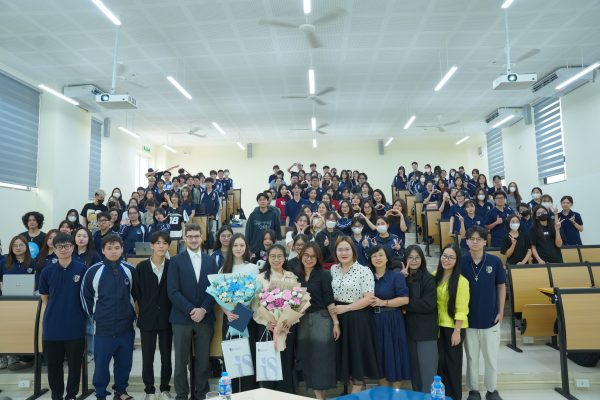For Vietnamese students, who often study English as a second language, understanding and being sensitive to multiculturalism is incredibly important. Interdisciplinary communication skills have become a crucial factor for students studying foreign languages.
Therefore, the course “Intercultural Communication” has been designed and integrated into the curriculum of the English Language program (specializing in Business – Information Technology) at the International School, Hanoi National University (Hanoi National University) to provide a comprehensive experience in the fundamental principles of intercultural and cross-cultural communication. This course helps students acquire sufficient knowledge to work in multicultural environments in the future.
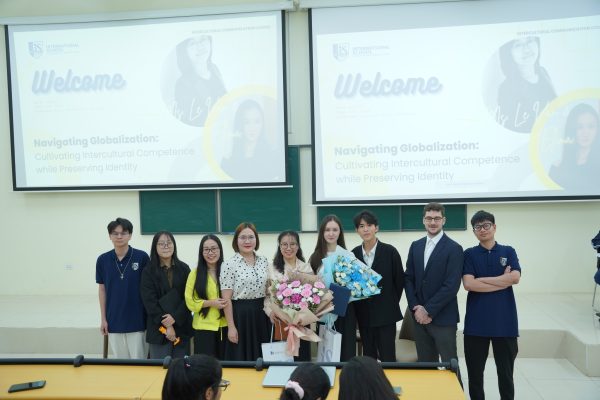
Translator Lê Hồng Vân and English Language student Chan Elina share their experiences with students majoring in English Language.
The course focuses on the values, awareness, and behaviors of diversity within and between cultural backgrounds, thereby encouraging self-reflection and fostering a high appreciation of cultural diversity. Intercultural communication plays a crucial role in connecting different cultural communities, enabling students to gain deeper insights beyond language proficiency alone. This course nurtures respect, empathy, and leadership skills in situations that require finesse in addressing cultural differences, enabling students to work effectively in today’s globalized world.
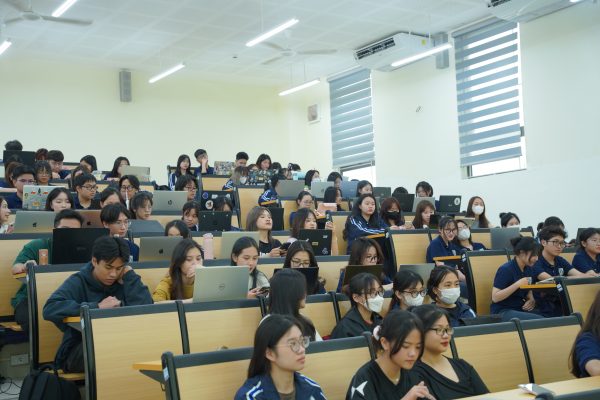
The program attracted significant interest from many English Language students.
On April 5, 2024, the seminar “Navigating Globalization: Cultivating Intercultural Competence while Preserving Identity” took place amidst the enthusiastic and cheerful atmosphere of students in the Intercultural Communication class of the English Language department. The program welcomed two esteemed guests, translator Lê Hồng Vân and third-year student majoring in English Language, Chan Elina Lamovna.

Speaker Lê Hồng Vân emphasized that intercultural competence is key to fostering harmonious and mutually respectful relationships in a multicultural environment.
During the seminar, translator Lê Hồng Vân emphasized that intercultural competence is crucial for promoting harmonious relationships and mutual respect in multicultural environments, requiring a deep understanding of both oneself and others. Additionally, openness, empathy, and attentive listening are also vital in overcoming common challenges such as prejudice and language barriers. Effective communication is an essential and indispensable factor in handling complex situations arising from cultural differences. To navigate cultural diversity and challenges successfully, communication needs to be accurate and clear.
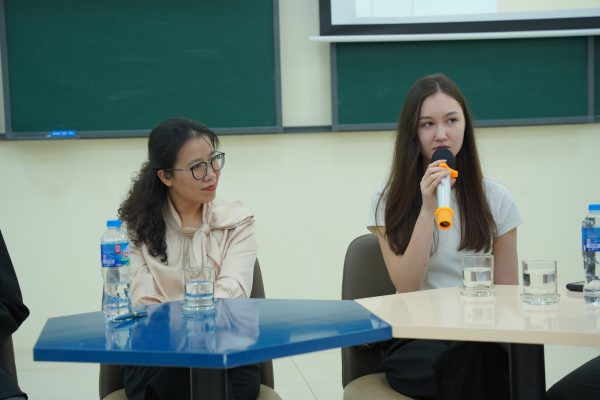 Chan Elina shared her journey of embracing her mixed heritage.
Chan Elina shared her journey of embracing her mixed heritage.
Elina Lamovna, a student of Vietnamese and Russian descent, shared her journey of embracing her mixed heritage, highlighting its particular significance in today’s interconnected world, where preserving one’s individual identity becomes essential.
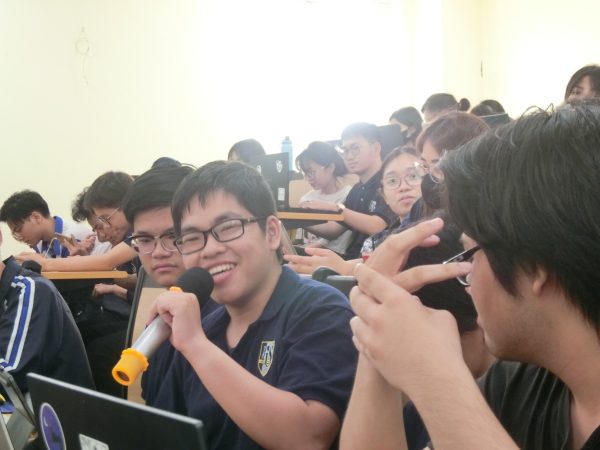
Students asked the 2 speakers various questions.
Translator Lê Hồng Vân emphasized the importance of personalization and motivational relationships in intercultural communication. By recognizing and embracing one’s own identity, we can create sincere and meaningful connections with others. She referred to the theory of “Collective Unconscious” by Carl Jung, a renowned psychologist, to underscore that intercultural communication is not only about understanding and accepting others’ cultures but also requires understanding and accepting ourselves. Through her experience, the speaker has realized that through cultural exchanges and interactions with people from different cultural backgrounds, we can enrich each other. Through sharing, learning, and leveraging diverse values, each individual can develop and mature in a multicultural environment.

The speakers took a commemorative photo with the professors and students of the International School.
Therefore, enhancing intercultural competence and embracing diverse cultures is essential for us to live and work in a globalized world. This not only benefits individuals but also contributes to the development and harmony of the global community.
Đao Thi Lan Anh, Le Khanh Huyen, Vu Ha Anh
English language Major
